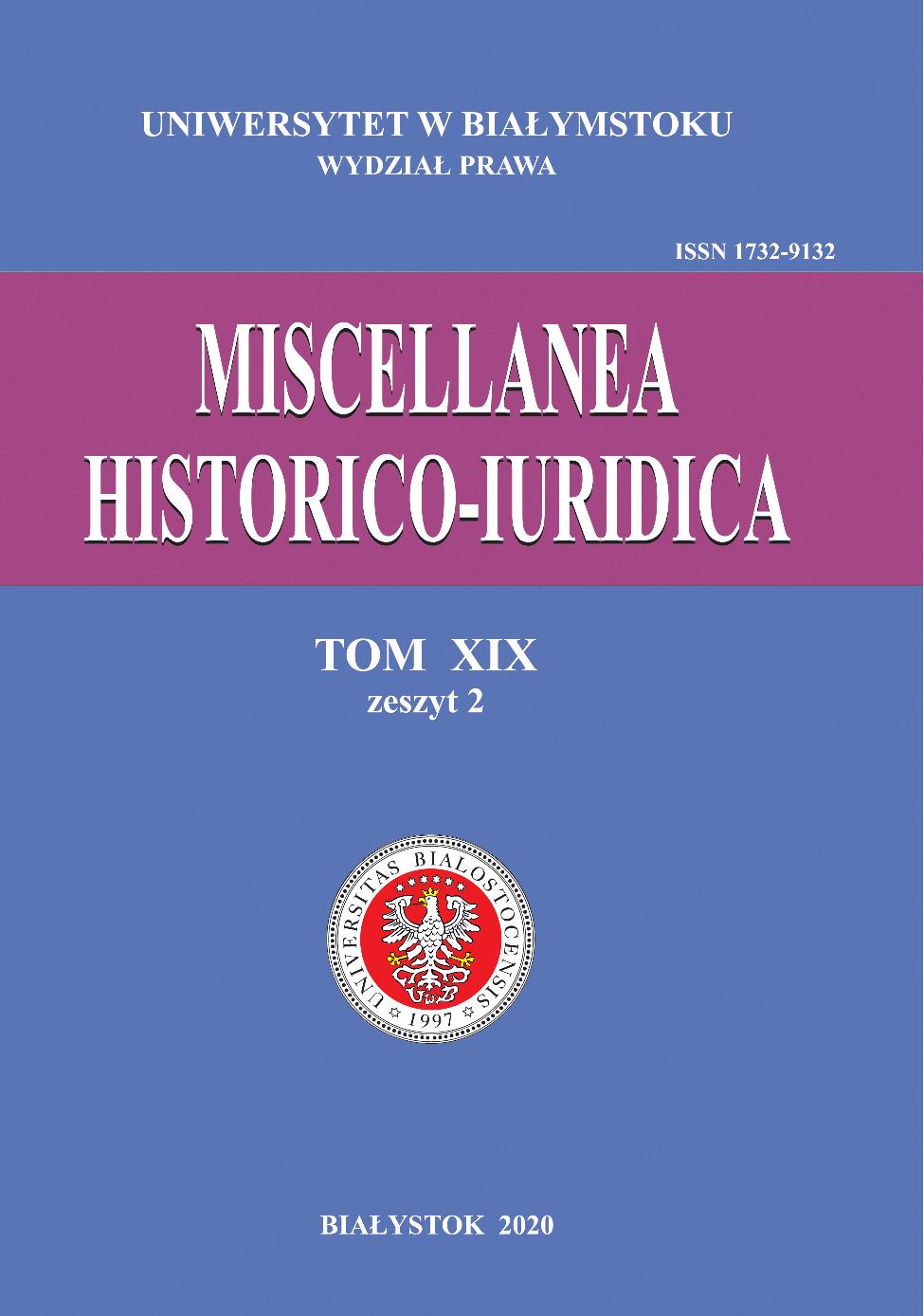Agreement between the People’s Republic of Poland and the Federal Republic of Germany on the basis of normalization of their mutual relations from 1970 – remarks in the context of Bonn’s European and eastern policy
Keywords:
FRG, PPR, European policy, FRG-PPR AgreementAbstract
The 50th anniversary of the Treaty between the People's Republic of Poland and the Federal Republic of Germany on the basis of the normalization of their mutual relations provides an opportunity to present a number of reflections, including remarks on the significance of this agreement for Bonn's foreign policy. The aim of the article is to reconstruct the relations and basic dependencies between Bonn's European policy (or, more broadly, the so-called Westbindung) and German eastern policy (Ostpolitik) and the Agreement as its element. The 1970 agreement has undoubtedly become one of the focal points in the process of changing, revising West German foreign policy at the turn of the 1960s and 1970s in its key dimensions. It has not only become a part of Germany's relations with the countries of Central and Eastern Europe. It has also played a certain role and gained certain influence in the sphere of relations between the Bonn Republic and the countries of Western Europe and in the Euro-Atlantic context. Therefore, it seems that the presentation of a set of reflections devoted to this problem, especially in the light of the forthcoming anniversary of the PPR-FRG Agreement, is justified. The considerations below, in the light of the presented assumptions, include an indication of the central directions of West German foreign policy shaped after the end of the Second World War, a reconstruction of relations between Bonn's European policy and its Eastern policy, and an assessment of the Agreement itself and its significance from the perspective of Germany's position in European relations. The analyses were based mainly on (Polish and foreign) achievements of political, historical and legal sciences and relevant sources of law. At the same time, it should be noted that the presented considerations do not aspire to a comprehensive analysis of the signalized problem, but rather constitute a set of reflections devoted to its key mechanisms.
References
Karta Narodów Zjednoczonych, Statut Międzynarodowego Trybunału Sprawiedliwości i Porozumienie ustanawiające Komisję Przygotowawczą Narodów Zjednoczonych (Dz.U. 1947 nr 23, poz. 90).
Traktat Północnoatlantycki sporządzony w Waszyngtonie dnia 4 kwietnia 1949 r. (Dz.U. 2000 nr 87, poz. 970).
Statut Rady Europy, przyjęty w Londynie dnia 5 maja 1949 r. (Dz.U. 1994 nr 118, poz. 565.)
Traktat ustanawiający Europejską Wspólnotę Węgla i Stali, źródło: https://eur-lex.europa.eu/legal-content/PL/TXT/?uri=CELEX:11951K/TXT.
Traktat ustanawiający Europejską Wspólnotę Gospodarczą (tekst w polskiej wersji językowej), źródło: https://eures.praca.gov.pl/zal/podstawy_prawne/Traktat_rzymski.pdf.
Traktat ustanawiający Europejską Wspólnotę Energii Atomowej, źródło: https://eur-lex.europa.eu/legal-content/PL/TXT/?uri=CELEX:11957A/TXT.
Układ między Polską Rzeczpospolitą Ludową a Republiką Federalną Niemiec o podstawach normalizacji ich wzajemnych stosunków podpisany w Warszawie dnia 7 grudnia 1970 r. (Dz.U. 1972 nr 24, poz. 168).
Bielawska A., Normalizacja stosunków polsko-niemieckich – proces wciąż trwający?, "Środkowoeuropejskie Studia Polityczne" 2009, nr 3.
Bingen D., Polityka Republiki Bońskiej wobec Polski. Od Adenauera do Kohla. 1949 – 1991, Kraków 1997.
Cordell K., Wolff S., Germany’s Foreign Policy Towards Poland and the Czech Republic. Ostpolitik revisited, New York 2017.
Czapliński W., Układ o normalizacji stosunków PRL – RFN z 1970 r. w świetle Konwencji Wiedeńskiej Prawa Traktatów, "Przegląd Zachodni" 1984, nr 1.
Cziomer E., Historia Niemiec 1945 – 1991. Zarys rozwoju problemu niemieckiego od podziału do jedności, "Zeszyty Naukowe Uniwersytetu Jagiellońskiego" MLXXIX, Prace z nauk politycznych, Zeszyt 47.
Doliwa-Klepacki Z., Integracja europejska, Białystok 2005.
Frowein J.A., Legal Problems of the German Ostpolitik, "International and Comparative Law Quarterly" 1974, 23, no. 1.
Große Hüttmann M., Wehling H-G. (Hg.), Das Europalexikon. Begriffe. Namen. Institutionen, Bonn 2013.
Haase Ch. (ed.), Debating Foreign Affairs. The Public and British Foreign Policy since 1867, Berlin-Wien 2003.
Juneau J-F., The Limits of Linkage: The Nixon Administration and Willy Brandt's »Ostpolitik«, 1969–72, Vol. 33, "The International History Review", June 2011, No. 2.
Koszel B., Rola Niemiec w procesach decyzyjnych Unii Europejskiej w XXI wieku, Poznań 2018.
Schwarz H-P., Die Politik der Westbindung oder die Staatsraison der Bundesrepublik, Zeitschrift für Politik, Jahrgang 22 (Neue Folge), Heft 4, 1975.
Sulowski S., Uwarunkowania i główne kierunki polityki zagranicznej RFN, Warszawa 2002.
Supranowicz R., Warschauer Vertrag vom 07.12.1970 und dessen Aufnahme in der Deutschen und Polnischen Publizistik der damaligen Zeit, "Acta Neophilologica" 2003, nr V.
Timmermann H., Adenauers Westbindung und die Anfänge der Europäischen Einigung, Konrad Adenauer Stiftung e.V., źródło: https://www.kas.de/documents/252038/253252/7_dokument_dok_pdf_16743_1.pdf/a3135836-f46a-dece-7b21-398f9c59ec32?version=1.0&t=1539662244553.
Woyke W. (Hrsg.), Handwörterbuch Internationale Politik, Wiesbaden 1986.







